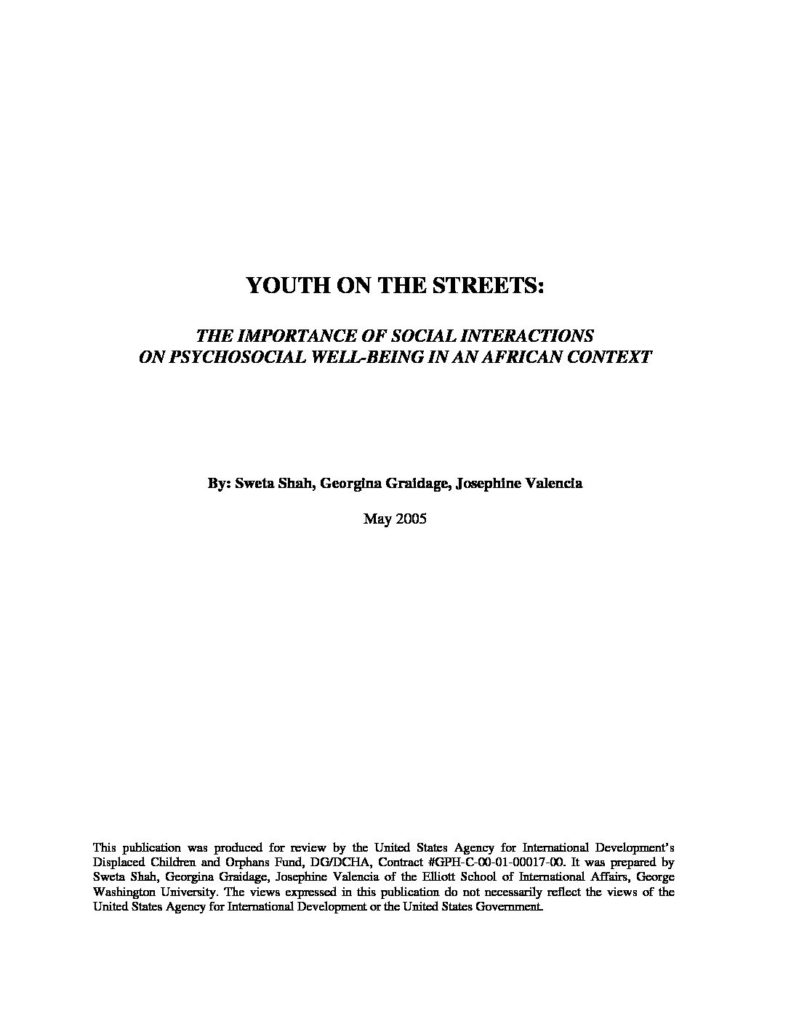
Youth on the Streets: The Importance of Social Interactions on Psychological Well-being in an African Context
Downloads
Summary
Street youth are resilient, creative individuals who have a great capacity to contribute to their communities and to the future development of Africa. However, street youth’s potentials are often not fully realized. In light of this, it is imperative to consider the significant numbers of these children who currently are finding their homes, livelihoods, and social networks on the street. There exist a wide variety of push and pull factors for youth ending up on the streets, including poverty, war, abuse, urban migration, accusations of witchcraft and family breakdown. In harsh situations, life on the streets may offer more opportunities for youth than life at home. Consequently, many youth make a conscious choice to leave home and live on the streets, drawn by the increased economic incentives and independence it affords.
This USAID study reflects four months of research including a two-week field assignment to Ethiopia, with the overall goal of gaining greater understanding of the impact of street youth programming on psychosocial well-being.
Discussion
Users can discuss this report and make suggestions for future updates. You must be signed in to submit a comment.
No comments
Join the conversation and
Become a Member Existing member loginbecome a member.